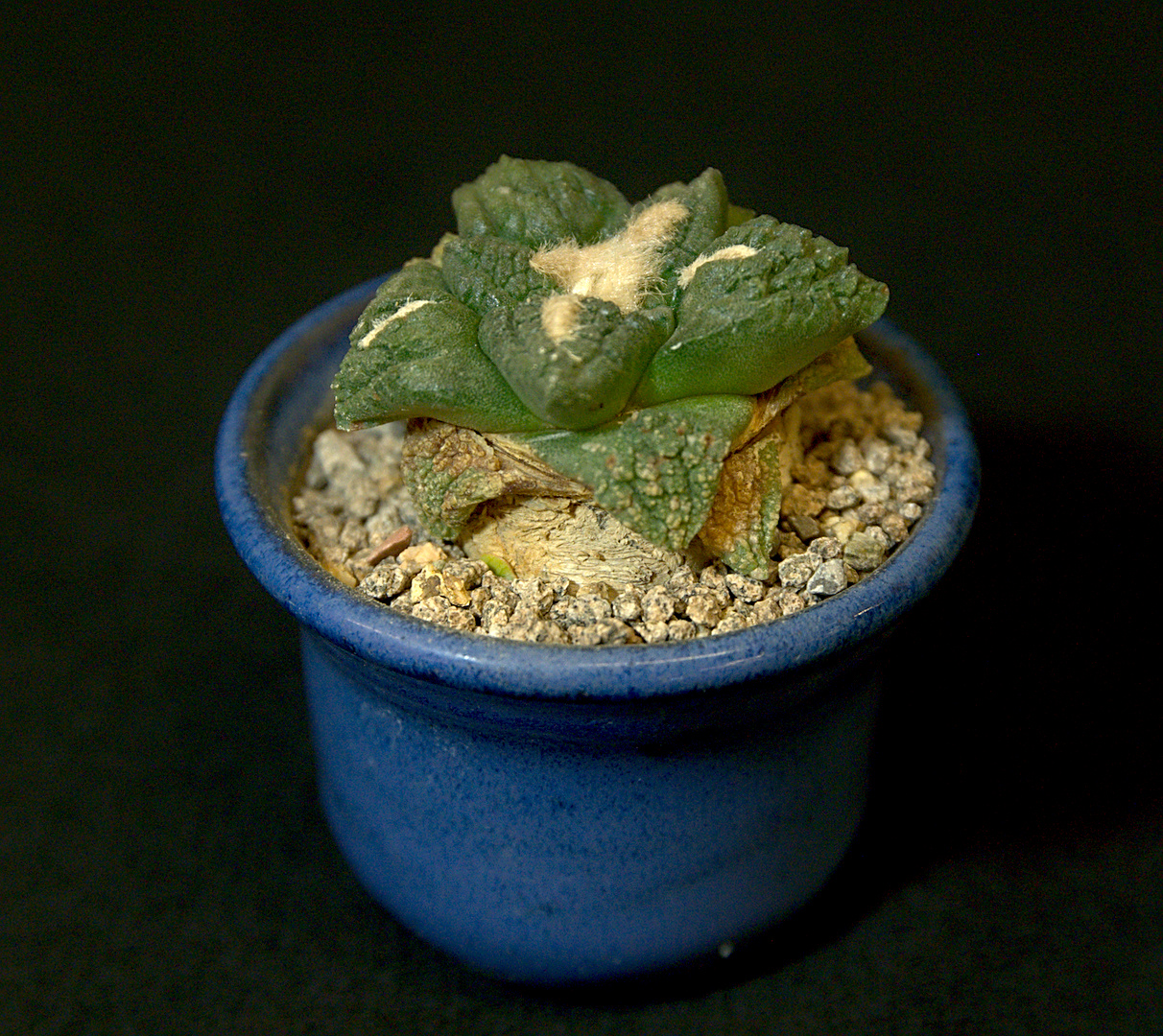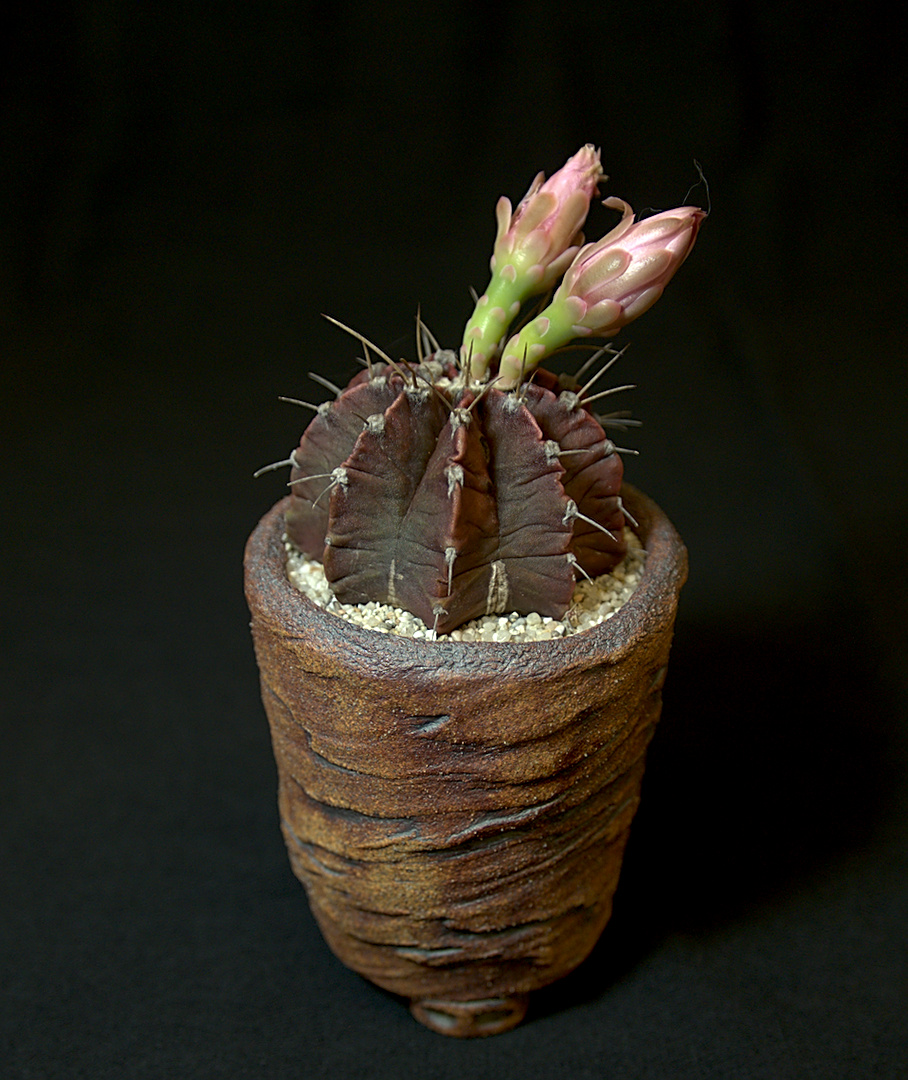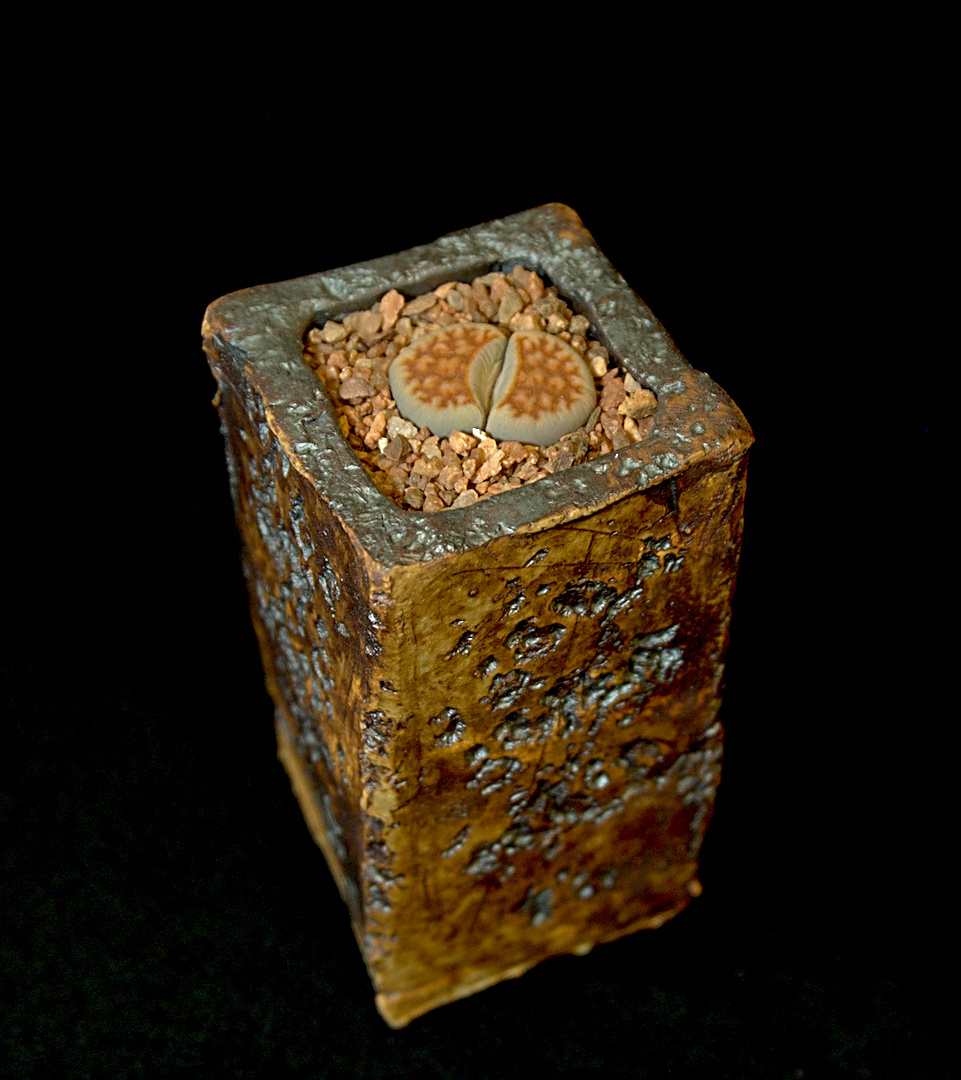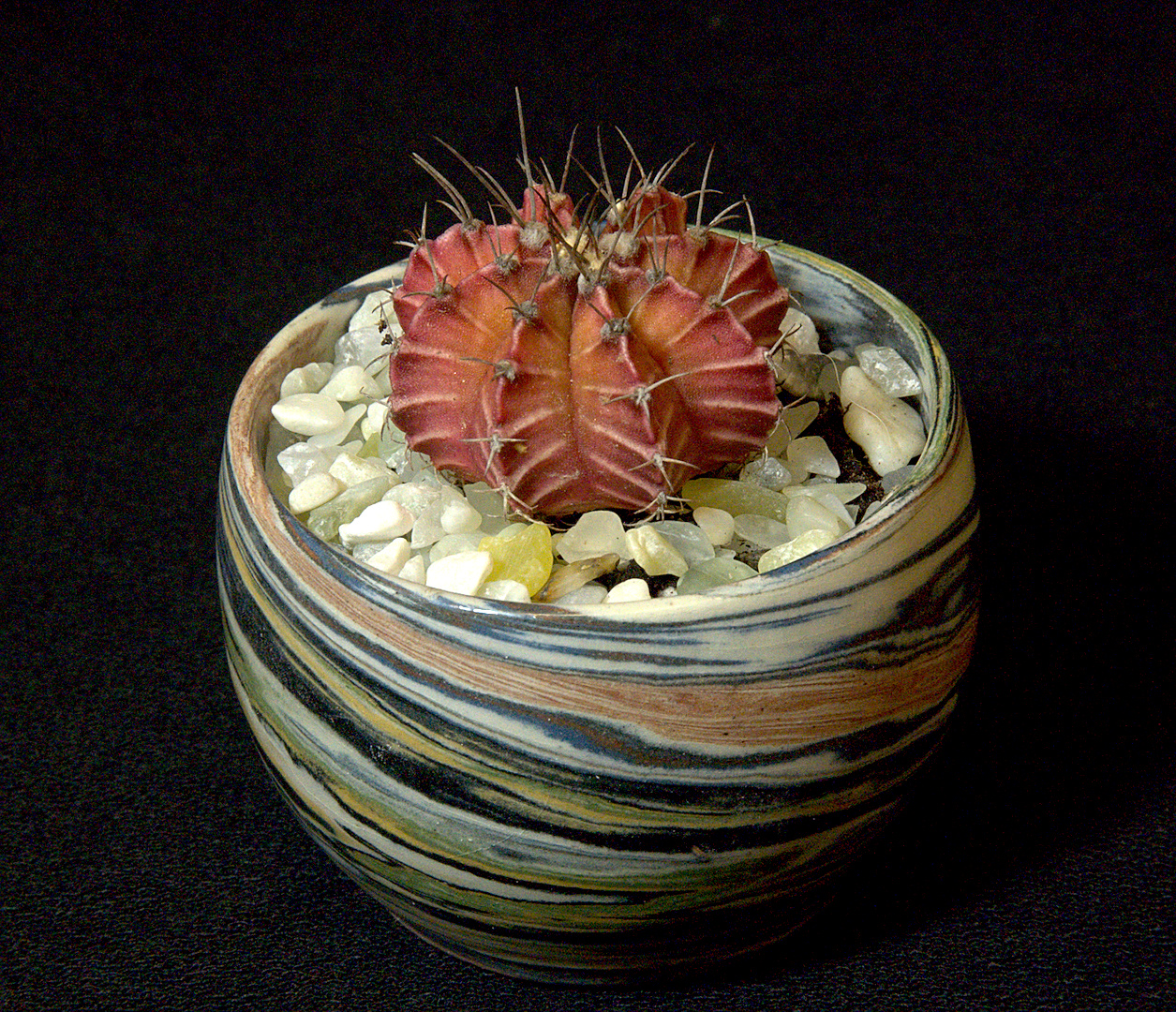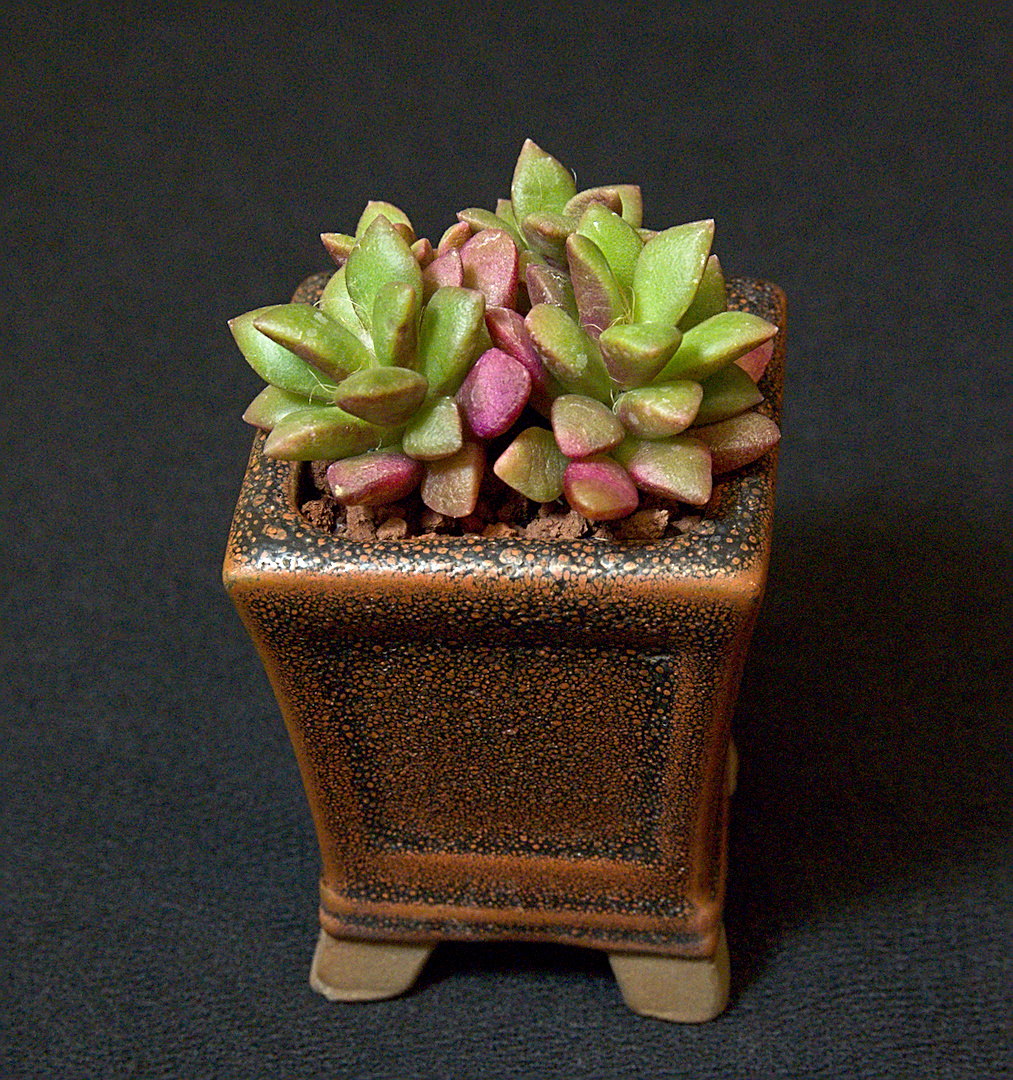Mini-Show Results October 14, 2018
Cactus of the Month: Miniature (3in or less). Succulent of the Month: Miniature (3in or less).
Photography by: Mike Short
Results submitted by: Jim Tanner
Open Cactus
1st: Jim Hanna – Ariocarpus fissuratus
2nd: Gary Duke – Mammillaria crinita subs. painteri f. monstruosa
3rd: Phyllis DeCrescenzo – Notocactus
Open Succulent
1st: Jim Hanna – Operculicarya decaryi
2nd: Gary Duke – Tylecodon stenocaulis
3rd: Gary Duke – Adromischus hybrid ‘Red Coral’
Intermediate Cactus
1st: Sally Fasteau – Gymnocalycium stenopleurum
2nd: Sally Fasteau – Gymnocalycium bodenbenderianum subs. triacanthum
3rd: Mike Short – Mammillaria vetula subs. gracilis
Intermediate Succulent
1st: Sally Fasteau – Lithops
2nd: Bernard Johnson – Pseudolithos cubiformis
3rd: Mike Short – Fenestraria rhopalophylla
Novice Cactus
1st: Martha Bjerke – Gymnocalycium stenopleurum
2nd: Coni Nettles – Gymnocalycium damsii v. rotundulum
3rd: Terri Straub – Opuntia rufida f. minima
Novice Succulent
1st: Coni Nettles – Anacampseros ‘Sunrise’
2nd: Coni Nettles – Sedum oreganum
3rd: Coni Nettles – Echeveria x imbricata
LATIN LOOKUP – Loquerisne Latine (Do you speak Latin)?
The meanings of latin plant names on this page – from http://davesgarden.com/guides/botanary/
- Adromischus [ad-roh-MIS-kus]
From the Greek hadros (thick or stout) and mischos (stalk), referring to the short pedicels. - Anacampseros [an-ak-KAM-ser-os]
From the Greek anakampto (to recover) & eros (love), an herb which was believed to bring back love if touched. - Ariocarpus [ar-ree-oh-KAR-pus]
From the Greek aria (sorb) and karpos (fruit), referring to the similarity to the fruit of the Ario genus. - crinita [krin-EE-tuh]
Long hair. - decaryi [de-KAR-yee]
Named for Raymond Decary, 20th century plant collector. - Echeveria [ech-eh-VER-ee-a, ech-eh-ver-EE-a]
Named for Anastasio Echeverria y Godoy, 18th century Spanish botanist. - Fenestraria [fen-es-TRAY-ree-uh]
From the Latin fenestra (window), referring to the transparent area at the tip of the leaves. - fissuratus [fis-zhur-RAY-tus]
From the Latin fissura, to split or crack. - gracilis [GRASS-il-is]
Graceful; slender. - Gymnocalycium [jim-no-kal-LISS-ee-um]
From the Greek gymnos (naked) and kalyx (covering; calyx); the flower buds are naked. - hybrid [HY-brid]
A cross between two plants resulting in a plant that differs in one or more genes from the parent plants; sometimes Latinized to hybridus, -a, or -um. - imbricata [im-brih-KAY-tuh]
Shingled, overlapping. - Lithops [LY-thops]
Like stone. - Mammillaria [mam-mil-AR-ee-uh]
Nipple- or teat-like. - minima [MIN-eh-muh]
Very small. - monstruosa [mon-stru-OH-sa]
Strange, wonderful; monstrous; also spelled monstrosa. - Notocactus [no-to-KAK-tus]
From the Greek notos (south) and kaktos (cactus), referring to the plant’s native habitat in South America. - Operculicarya [oh-per-koo-lee-KAIR-yuh]
From the Latin operculum (little lid) and Greek karyum (nut), referring to the lidded, nut-like seeds. - Opuntia [op-UN-shee-a, op-UN-tee-a]
Named after Opus (Greece), an area where other cactus-like plants were grown. - oreganum [or-reh-GAH-num]
Derivation of oregonum, of or from Oregon (U.S.), or the old Oregon Territory (later divided into the states of Washington and Oregon). - rhopalophylla [rope-a-lo-FIL-la]
Having club-shaped leaves. - rufida [ROO-fee-duh]
Reddish, rusty colour. - Sedum [SEE-dum]
Sedentary, to sit. - stenopleurum [sten-oh-PLOOR-um]
Narrow ribs or sides. - triacanthum [try-a-KAN-thum]
Three spined. - Tylecodon [ty-lee-KOD-on]
An anagram of Cotyledon (a closely-related genus). - vetula [VET-uh-luh]
From the Latin, meaning old or elderly.
